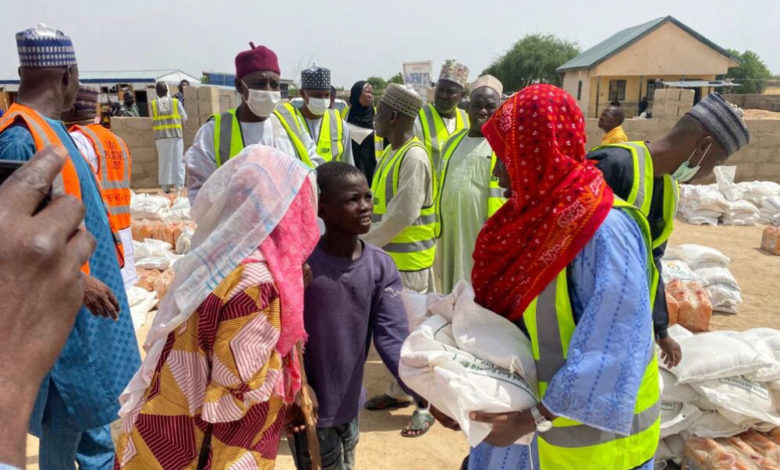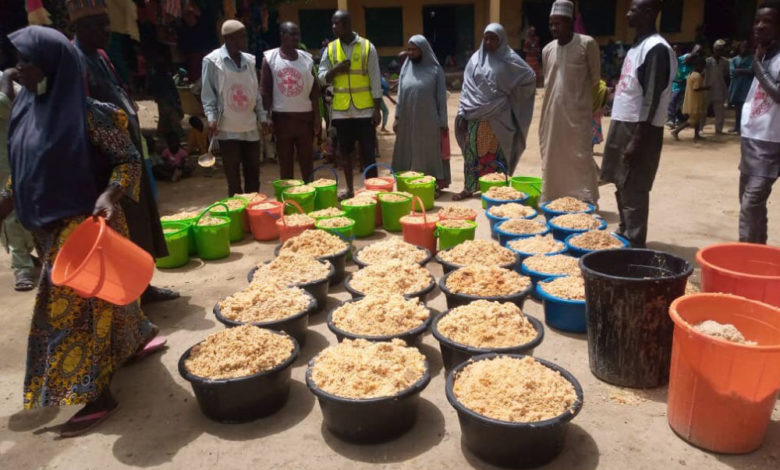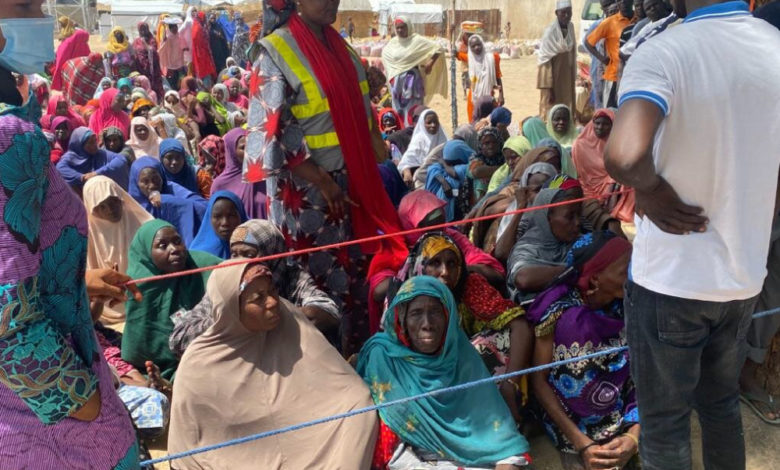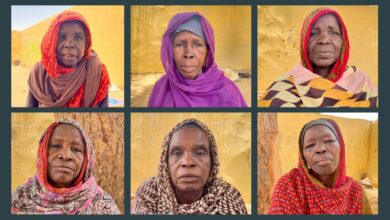Number of People Requiring Humanitarian Aid in North-East Nigeria Highest in Five Years
The number of people requiring humanitarian assistance in northeast Nigeria is currently at its highest since a joint humanitarian response was established in the region five years ago.
The United Nations Office for the Coordination of Humanitarian Affairs (UNOCHA) will hold a briefing on Thursday 13th August on the deteriorating humanitarian situation in conflict-affected Nigerian states.
According to the UN, there are 10.6 million people in Borno, Yobe and Adamawa in urgent need of assistance to overcome malnutrition, food, insecurity, violent attacks, disease and floods, which has increased exponentially with the threat posed by the COVID-19 pandemic.
Those slated to attend the briefing include Mr Edward Kallon, United Nations Resident Representative and Humanitarian Coordinator in Nigeria, the Minister of Humanitarian Affairs, Disaster Management, and Social Development, Hajiya Sadiya Umar Farouq, the Governor of Borno state, Prof. Babagana Umara Zulum and the head of the United Kingdom’s Department for International Development (DFID), Mr Chris Pycroft.
The Country Representative, United Nations’ Children Fund (UNICEF) Mr Peter Hawkins, Country Representative, World Food Programme (WFP) Mr Paul Howe, Country Director, Christian Aid, Mr Charles Uzie and the Chairman of the Network of Civil Society Organisations Borno (NESCOB), Ambassador Ahmed Shehu are also expected to take part in the briefing.
The report highlighted the urgent need for a decongestion of IDP camps to control the spread of the virus and highlighted the increase of gender-based violence due to the government’s school closure.
“In an area where famine was averted only a few years ago and where millions are still struggling day by day to find their next meal, food insecurity has been gradually worsening.
“Despite tremendous efforts by the humanitarian community, bringing food assistance to over 2.5 million people, violent attacks continue to prevent people from reaching their farmlands and rebuilding sustainable livelihoods.
“The steep rise in prices and COVID-19 related movement restrictions have caused insufferable shocks,” the report said.
It also indicated a substantial increase in individuals at risk of becoming malnourished, with an estimated 4.3 million people facing an immediate food insecurity crisis.
“Without immediate support, one out of five malnourished children could die without treatment,” the report read.
“Increased food insecurity will lead to higher levels of malnutrition in areas where moderate malnutrition levels remain above the emergency threshold.”
In 2019, humanitarian organisations reached 5.2 million people in the northeastern region struck by the insurgency. This year, despite the challenges posed by the pandemic, 2.6 million people in need have benefitted from humanitarian aid.
The United Nations alongside other NGOs have collectively appealed a sum of $1.08 billion, amounting to less than twelve dollars a month for 7.8 million people requiring such assistance, with $246 million budgeted explicitly towards COVID-19 relief. A third of this amount had been received by the end of the first half of the year.
“The humanitarian community is deeply concerned about the impact of COVID-19 on fragile areas and vulnerable populations, particularly for the 1.9 million of internally displaced people living in host communities whose resources are already stretched or overcrowded camps and camp-like settings,” the report stated.
Support Our Journalism
There are millions of ordinary people affected by conflict in Africa whose stories are missing in the mainstream media. HumAngle is determined to tell those challenging and under-reported stories, hoping that the people impacted by these conflicts will find the safety and security they deserve.
To ensure that we continue to provide public service coverage, we have a small favour to ask you. We want you to be part of our journalistic endeavour by contributing a token to us.
Your donation will further promote a robust, free, and independent media.
Donate Here







